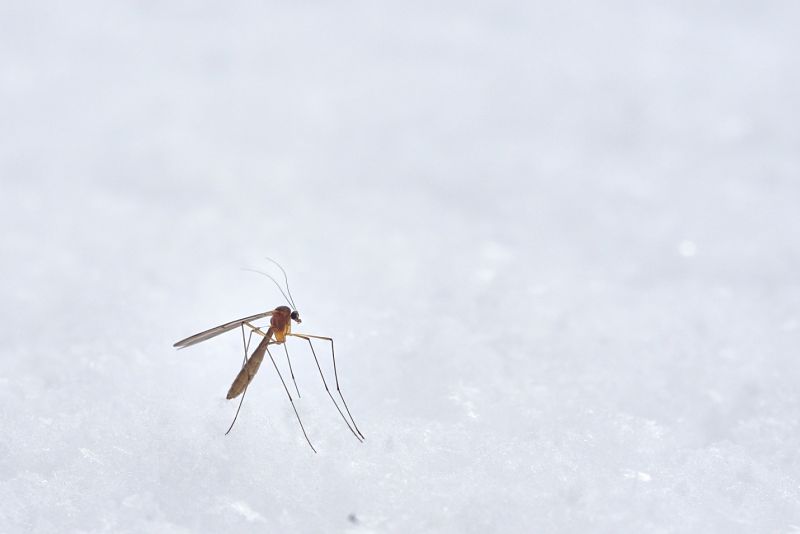Top tips for preventing malaria

Malaria is a potentially life-threatening disease prevalent in many areas around the world. Read on to learn more about keeping yourself safe on your travels.
Top tips for preventing malaria
Caused by the plasmodium parasite and predominantly spread through the bite of infected female mosquitoes, malaria is a potentially life-threatening disease typically found in warmer, tropical climates. Children and pregnant women are particularly vulnerable to contracting the disease, but anyone living in or travelling through an affected area is at risk. Almost 230 million cases were reported in 2018.
In an infected human, the disease will begin to develop in the liver, before spreading to the red blood cells and causing a number of flu-like symptoms, along with convulsions and, in some cases, a coma. Anyone travelling to an area that poses a risk of infection should exercise strong caution before exposure.
Fortunately, there are a number of precautions you can take before, during, and after your trip. Taking extra measures to avoid unwanted attention from mosquitoes, and arming yourself with the right anti malaria tablets, will significantly lessen your chances of contracting the disease.
1. Protect Yourself at Night
Mosquitoes tend to be much more active at night, which means that finding a way to protect ourselves when we go to sleep is an effective method for avoiding bites from infected hosts. Bed nets treated with insecticides are thought to be twice as effective as untreated bed nets — provided that they are regularly checked for holes and, if one is found, replaced immediately.
Do not sleep outside unless you have a tent. If you are camping, ensure that there are no holes in the fabric, and that the tent door is kept closed at all times.
2. Take Your Anti Malaria Tablets
Malaria pills should be taken by anyone travelling to an area that poses a risk of infection. Although the course duration varies depending on the exact treatment you choose, they must be taken consistently before, during, and after your travels into affected areas. Do not stop taking your medication upon your return to the UK — even if you do not feel unwell, or exhibit no signs of being bitten by a mosquito — until you have completed your course of treatment.
Two of the most effective anti-malaria tablets are Malarone and Doxycycline for Malaria; both are efficacious in many high-risk areas around the world, though it is important that you check the NHS Fit for Travel website to check which treatment is most recommended for your destination.
Advanced strains of malaria no longer respond to certain anti malaria tablets, such as chloroquine.
3. Keep the Air Conditioning On
An air-conditioned room is not as inviting to a mosquito as a warm, humid area. What’s more, rapidly circulating air makes it more difficult for mosquitoes to detect your scent — specifically, the CO2 you naturally emit — making you less of a target.
Running the air conditioning will also mean that doors and windows are kept closed, which will make it far more difficult for mosquitoes to get into your living spaces.
If you do not have air conditioning, then ensure that all open windows are covered by nets, and that the door is kept closed as often as possible. You should also regularly use an anti-mosquito room spray around your living spaces.
4. Cover Your Skin
Ideally, anyone venturing into an area with a high risk for malaria would keep their skin totally covered. Of course, in hot and humid environments this is not always easy, but long cotton sleeves and trousers, and shoes or socks that cover the ankles and feet, will make it much more difficult for a mosquito to penetrate the skin.
While it is possible for mosquitoes to bite through clothing, combining long sleeves with an effective insect repellent — and respraying yourself throughout the day — will lower your risk of attracting them.
5. Always Use Repellents
While mosquitoes are more active during dusk and nighttime, there remains the possibility that you will be bitten at any time of day. Standing water and unemptied rubbish bins are attractive hang-out spots for mosquitoes and, since it does not take long for a mosquito to land, bite, and draw enough blood to feel satiated, finding and applying an effective repellent is essential.
Mosquito repellents containing DEET, picaridin or IR3535 are widely thought to be the most effective. Contrary to popular opinion, citronella is not an effective deterrent to mosquitoes.
Remember that, with all the precautions in the world, nothing is able to offer 100% bite protection. The most effective way of preventing malaria is to take anti malaria tablets before, during, and after your trip.
